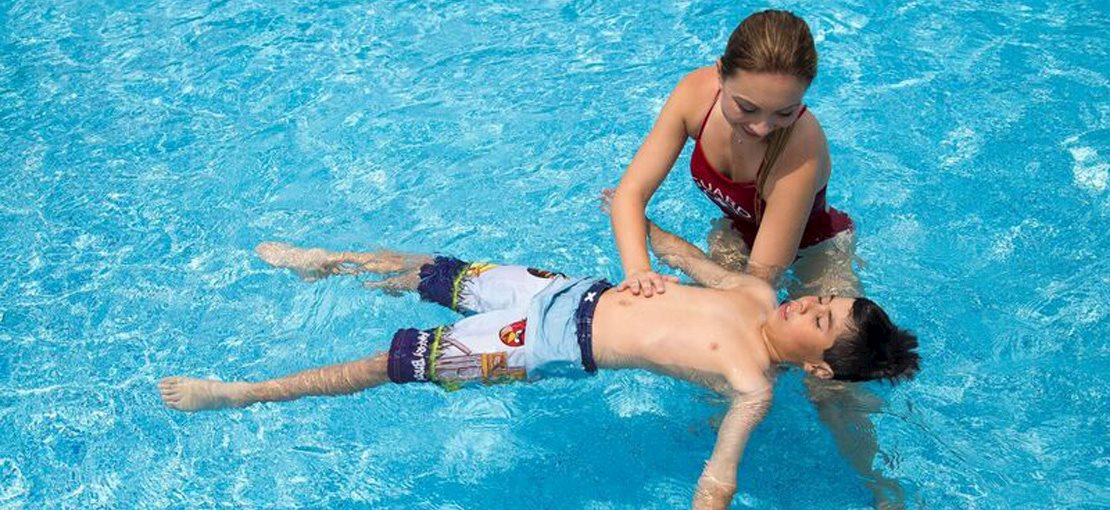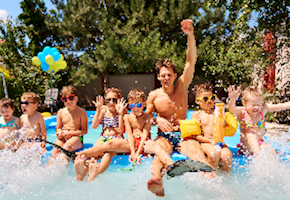Starting to think about day camp for your child? Day camp is often a child’s first step towards independence and can help children develop important life skills that will last a lifetime. Renee Flax, Director of Camper Placement for the American Camp Association, NY and NJ, has been helping parents find the right camp for their children for over twenty years and offers parents the following advice when considering day camp.
Why should parents consider day camp for their child?
RF: A day camp experience offers children a unique learning environment along with a fun summer! Day Camp gives children the opportunity to be separated from their parents for a short amount of time, allowing campers to learn how to handle situations on their own without their parents there to step in and make a decision for them. At camp, children develop confidence in their own ability to make decisions and solve problems. They work together with other children in a group and become part of the camp community, developing social skills which aren’t as intuitive in today’s society as they have been in the past.
Besides social-emotional skills, there are practical skills children learn at day camp. One of the most important activities learned at camp is how to swim. Swim lessons are very important for young children along with other skill sets such as learning to share, listen to directions, make decisions about what they want to do and who they want to become friends with. These are all part of the day camp experience.
What should they look for in a day camp?
RF: There are many factors parents should look for when choosing a day camp. Here’s a checklist of what parents should think about when beginning their research.
- Make sure the camp has outside review. At a minimum, the day camp should be inspected by the Department of Health. Choosing a camp that is accredited by the American Camp Association means the camp goes beyond basic inspection by the DOH and is a parent’s best evidence that a camp is living up to the highest standards in the industry.
- Inquire about the director. Is the director a seasonal director or full time camp director. Make sure you click with the director and you feel they are someone you can partner with.
- Do you need a full day camp with transportation and extended hours because you work or is a camp just a few hours a day enough for you and your child?
- Make sure the camp offers activities your child will enjoy.
- Are you comfortable with your child on a bus or are you looking for a closer option?
- Consider the cost of the program and if it fits within your budget.
- What is the program offered at the camp?
- What is the composition of the staff hired?
- Are you looking for a smaller, nurturing camp or a larger camp with more diverse activities?
- Asking friends and neighbors about their experiences at a certain camp is a good start to find out about a camp’s reputation however you want to do your own research. Attend open houses and talk to camps at camp fairs.
Why is day camp so important for children, today more than ever?
RF: Day camp is very important to children in today’s world. These days, children are spending more time alone on their electronics and not communicating face to face with friends. Camps are one of the last unplugged environments for children. The ability to socialize and work together as a cohesive group is one of the hallmarks of day camp. Counselors assist their campers in working together and resolving any social issues that do arise. Children also learn healthy competition and the ability to take safe risks - jumping in a pool, singing on stage, trying the ropes course or playing organized sports. Campers learn that with perseverance, they can conquer their own fears and learn to love certain activities that they never would have tried if they were not at day camp.
What can camp provide a child that they can’t get just in sports class or at the pool this summer?
RF: A sports class or going to a pool over the summer is certainly fun for children, however, it doesn’t give a child the valuable experience of being a part of a group and a larger camp environment. Camps provide a home away from home feeling- there is comradery at all camp activities such as a carnival or Olympics where campers come together and a child feels they are a part of a larger environment. Learning the camp songs and cheers and doing them with all of their friends gives young children the feeling of belonging – and they get to do this without their parents there. Navigating this experience with friends and counselors is a tremendous growth experience for young children and gives them the confidence to go out in their world believing in themselves. Camp is more than just individual activities – it is a close knit group of people who share their summers in an idyllic environment.
Jess Michaels is the Director of Communications for the American Camp Association, NY and NJ. She has two daughters, both who will be attending day camp this summer. Parents looking for free, one-on-one advice in finding a camp can call the American Camp Association, NY & NJ at 212.391.5208.




.jpg?w=290&h=200&c=3)
Add A Comment
Thank you for your comment.
Sorry! There was a problem with your comment submission. Please try again.
Comment
Allowed HTML: <b>, <i>, <u>, <a>
Comments
Thank you for your comment.
Sorry! There was a problem with your comment submission. Please try again.
Thank you for your comment.
Sorry! There was a problem with your comment submission. Please try again.